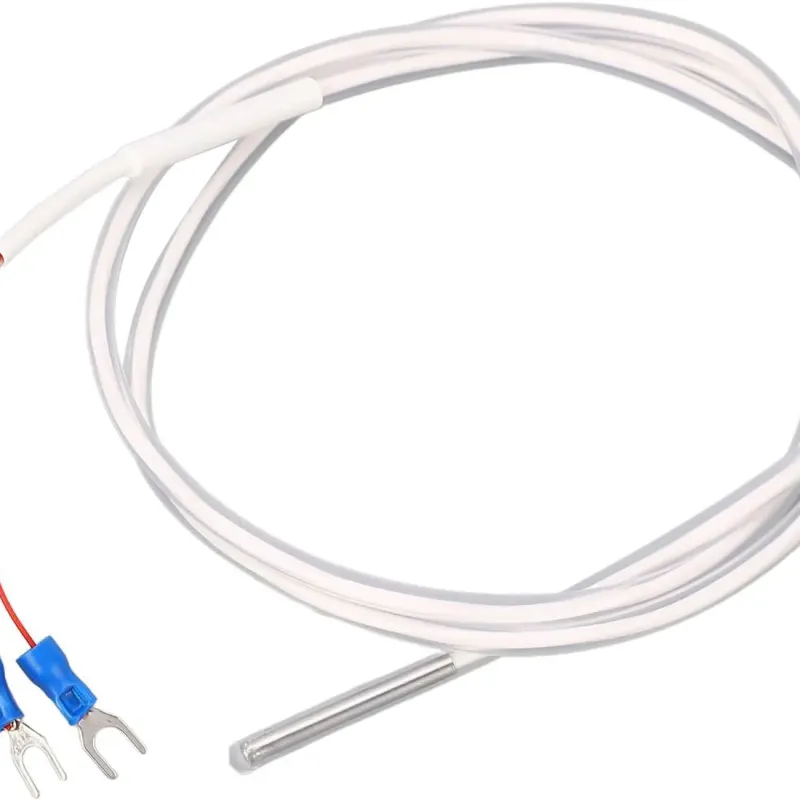
- Stock: Out of Stock
- Model: N282.PT100
PT100 3-Wire Platinum RTD Temperature Sensor Probe
The PT100 Platinum RTD (Resistance Temperature Detector) is a temperature sensor renowned for its precision and stability. It stands out for its unique ability to alter resistance in response to temperature fluctuations, making it more dependable and sensitive than common NTC/PTC thermistors. With its high stability, PT100 sensors are extensively employed in industrial operations and laboratory experiments for accurate temperature readings.This high-temperature PT100 sensor comes with a stainless steel protective cover, making it apt for temperature measurements ranging from -50°C to 280°C.
PT100 Features
- Temperature measurement based on resistance alterations in a platinum element.
- Utilizes platinum with a resistance of 100 ohms at 0°C, hence the designation PT100.
- Platinum’s positive temperature coefficient augments resistance as temperature escalates.
- Nominal resistance shift of 0.385 Ω/°C.
- Delivers superior accuracy and stability compared to thermocouples, silicon-based sensors, or thermistors.
Sensor Wiring
Each sensor is equipped with three wires:
- Two wires are connected to either side of the platinum resistance.
- The third wire is also connected to one side of the PT100 element.
If your RTD amplifier is compatible with 3-wire sensors, it will accurately measure voltage drops by nullifying resistance induced by the wires. For a 2-wire setup, the third wire should remain disconnected.
Technical Details
- Stainless Steel Probe: 4mm diameter, approximately 30mm length (size may vary)
- Cable Length: Roughly 1m / 100cm
- Package Includes: PT100 temperature sensor with three terminal wires
PT100 Specifications
- Temperature Range: -200°C to 550°C (-328°F to +1,022°F)
- Interface: 3-wire
- Accuracy: ±0.5°C from -10°C to +85°C
- Weight: 19.3 g / 0.7 oz
Package Contents
1 x PT100 3-Wire Platinum Resistive Temperature Sensor Probe
This PT100 sensor is perfect for precision temperature applications where stability, repeatability, and accuracy are of utmost importance.







